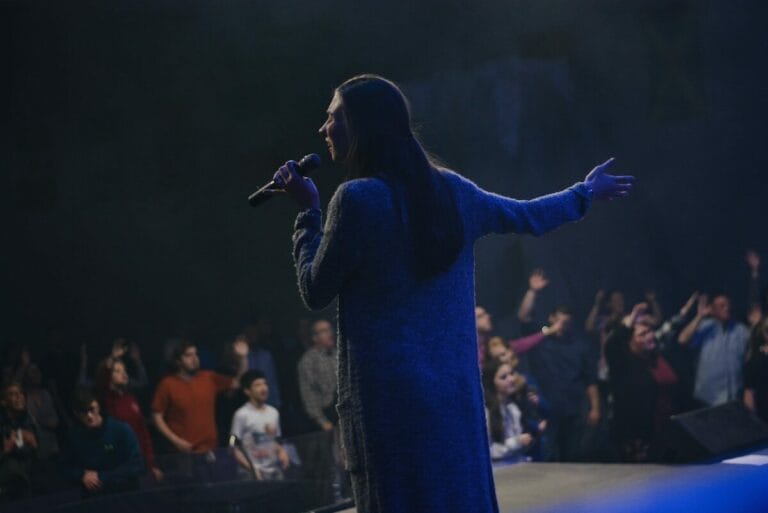Village School’s Class of 2025: Inside the Ambitions Shaping America’s Next Class of Graduates
The Village School's Class of 2025 redefines academic success with IB diplomas, global university placements and $67 million in scholarships

When 107 teenagers choose to pursue the International Baccalaureate Diploma – a qualification that demands they study in a second language, complete extensive research projects and engage with global perspectives – it says something about what young people now expect from their education. The Village School’s Class of 2025 didn’t just graduate with $67 million in scholarship offers and acceptances to universities across 18 states and six countries. They graduated with a different definition of what success looks like.
These students chose paths that previous generations might have found unnecessarily challenging: 16 earned pre-medical science diplomas, 16 completed entrepreneurship programmes and four became National Merit Scholars. Their university destinations read like a global atlas – from MIT and Columbia to Hong Kong University of Science & Technology and Imperial College London.
A New Standard for Graduates
The scale of the 2025 class’s achievements shows something happening across American education. IB programme participation has grown by 34.2% globally between 2020 and 2024, with nearly 193,000 students worldwide taking diploma examinations in May 2024 alone. What once seemed like an elite pursuit has become mainstream among ambitious students.
‘We are incredibly proud of the Class of 2025,’ said Bill Delbrugge, Head of School at The Village School. ‘Their accomplishments across academics, athletics and global engagement show the well-rounded education and strong character we cultivate at Village. This class truly represents the future – and it looks very bright.’
The scholarship figure – $67 million – puts the Village School’s achievements in perspective. Average scholarship aid for first-time undergraduates at four-year colleges hovers around $15,750 annually. For one graduating class to secure this level of financial recognition suggests these students understood early that academic excellence alone wouldn’t be enough.
Why Students Push For More
The 107 IB Diploma candidates represent more than academic ambition. The International Baccalaureate requires students to complete coursework in six subject areas, including mandatory second-language study, along with extended essays and creativity, activity, service requirements. It’s designed for students who want to think globally before they graduate.
Research shows IB students demonstrate higher university admission and completion rates compared to their peers, but the programme demands significant commitment. These Village School students chose rigour over convenience, suggesting they understood that future opportunities would require more than traditional credentials.
The 16 students who earned pre-medical science diplomas follow another pattern. While 75% of Generation Z students express interest in STEM fields, many face limited exposure to fundamental technical subjects. The Village School’s pre-medical programme addresses this gap directly, providing hands-on experience that standard biology classes cannot match. This approach to STEM education helps students understand what they’re getting into before they commit to years of studying.
Similarly, the 16 entrepreneurship diploma recipients align with broader generational patterns. About half of Generation Z students aim to start their own businesses, and they prefer practical, hands-on learning through real-world collaborations. The Village School’s entrepreneurship programme gives students actual business experience while they’re still in secondary school.
What ‘Success’ Looks Like in 2025
The university destinations chosen by Village School graduates reveal changing definitions of prestige and opportunity. While traditional powerhouses like MIT, Columbia, Cornell, Johns Hopkins and Northwestern remain attractive, students are increasingly looking beyond American borders for their education.
The inclusion of Hong Kong University of Science & Technology and Imperial College London on the list shows a broader trend. Record numbers of US high school students applied to UK undergraduate degrees this year, drawn by shorter degree programmes and international exposure. Hong Kong universities are actively recruiting American students, offering strong STEM programmes with tuition ranging from $11,500 to $34,000 per year.
The five student-athletes committing to NCAA Division I, II and III sports in basketball, football, lacrosse, soccer and volleyball demonstrate that academic achievement and athletic excellence aren’t mutually exclusive. These students managed demanding course loads while maintaining competitive athletic performance – a balance that requires exceptional time management and commitment.
The four National Merit Scholars represent the pinnacle of American academic recognition. Approximately 7,500 National Merit scholarships are awarded nationally, making this achievement particularly noteworthy for a single graduating class. These students scored in the top percentile on standardised tests while maintaining excellent grades and demonstrating leadership.
School Culture and Support
The diversity of achievements – from IB diplomas to entrepreneurship programmes to international university admissions – suggests The Village School created an environment where students felt supported in pursuing ambitious goals. The school’s approach recognises that today’s students need more than traditional academic preparation. The connections and opportunities students build during their school years matter just as much as their grades.
Delbrugge’s emphasis on ‘strong character’ alongside academic achievement shows an understanding that success in 2025 requires more than test scores. The global nature of the students’ university choices suggests the school prepared them to compete internationally, not just domestically.
The range of specialised diplomas – pre-medical science, entrepreneurship, IB – indicates the school recognised that different students have different strengths and interests. Rather than pushing everyone toward the same definition of success, they created multiple pathways for achievement. This personalised approach to education helps students discover what they’re truly passionate about pursuing.
What These Results Mean for Parents
The Class of 2025’s achievements suggest that today’s exceptional students expect more from their education than previous generations. They’re willing to take on additional challenges – second languages, research projects, entrepreneurship programmes, international qualifications – because they understand that future opportunities will require more than minimum standards.
Their global university choices show confidence in their ability to succeed anywhere, not just in familiar environments. The $67 million in scholarships represents recognition that these students offer something valuable to universities worldwide. As they take their next steps, they’re doing so with credentials that show both academic excellence and global readiness.





